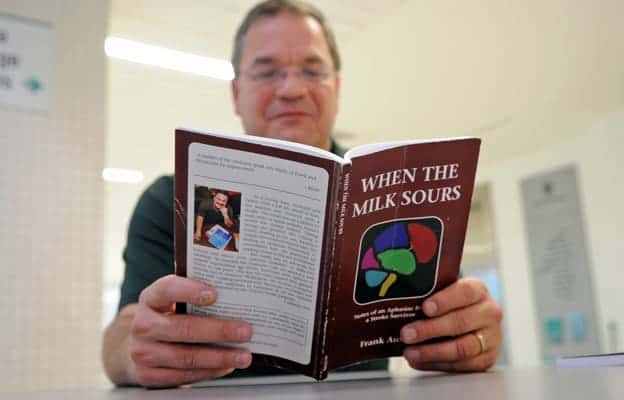Every fall during Tommy Mayberry’s post-graduate career, the Elmira native spent countless hours gathering reference letters from professors and perfecting an application for the Social Science and Humanities Council of Canada’s (SSHRC) research grant.
![Elmira District Secondary School graduate Tommy Mayberry often presents research in drag, as part of the dissertation: “The Gaga Academy: Drag Bodies in/as Subjective Scholarship.”[Submitted]](https://www.observerxtra.com/content/images/wp-content/uploads/2014/10/post_news_mayberry.jpg)
The prestigious award is given each year by the Canadian government to support academic research in social science. And it comes with $60,000 in funding.
“It is a highly competitive process, whereby every September and October, graduate students are just scrambling to put together a proposal for the government that proves their research is worth the investment,” Mayberry explained.
This year, Mayberry, a PhD student in the English department at the University of Waterloo, received the honour for his dissertation, “The Gaga Academy: Drag Bodies in/as Subjective Scholarship.”
“When I read the e-mail from the SSHRC, I just burst into tears,” Mayberry said. “I used to joke it was about the money, because it is a huge grant that would help me live (during my studies), but when I opened that e-mail, the thought that hit me wasn’t that I am financially set for my PhD, it was just extreme validation.”
The prize comes with a $20,000 cheque every 12 months for three years. Winning the award also made Mayberry eligible for an additional $10,000 grant from the University of Waterloo.
“There are applicants from across the social sciences, from anthropology and psychology and all of the various disciplines,” Mayberry said. “So people are doing remarkable work in every department and every discipline, so I always sort of felt like if my proposal was up against someone working in psychology who is studying the next grounding thing for humanity, maybe being a drag queen and writing about Lady Gaga wouldn’t cut it. But as I continue moving forward I understand that my work is important and I have gained the confidence that what I am doing and what I am saying is important. Gender identity, especially in the post-millennial era is important because they are here, I should say, we are here, and we have always been here, and it is so much more in the mainstream now. “
Mayberry described the dissertation.
“I see William Blake (Romantic Period poet and painter) and his moment with his revolutionary work in the 1790s as the start of a cultural trend of transgender visual culture that permeates the next (roughly) 220 years to arrive at contemporary bodies such as pop diva Lady Gaga and drag queen RuPaul. My thesis is also about the performance of myself as one of these such bodies, as a drag queen myself in the academic context. So, in the growing scholarly trend of research-as-practice or research-creation, I am, as an academic drag queen, not only researching the moments I see most strongly contributing to this transgender visual culture evolution (such as Blake, Frankenstein, Oscar Wilde, David Bowie) but recreating them as contemporary drag projects as well so that my dissertation is a hybrid written/visual project.”








